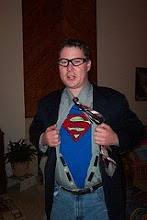I thought about this last night when we were discussing this final post and I decided that I was going to do this exercise as if I were starting my own consulting comapny, so here goes!
Mission Statement
To work in a collaborative manner with all clients by exercising a spirit of authentisty whereby the clients problem is my problem. To ensure a spirit of communication whereby assumptions are left behind and a full scope of a problem is reviewed. To never jump to conclusions or to solve a problem with out all the facts and data. To own the problem with the client rather then place ownership all on the client.
Vission Statement
Consulting is a process, not destination. It takes thought to look beyong the real problem to find the deeper issue. Anyone can staple two sheets of paper together, but a process consultant understands why the two pieces of paper need to be stapled in the first place.
Core Values
Collaboration is the secret to solving all sorts of problem,
No problem is too big or too small, jumping to conclusions only makes the problem worse. Band aid fixes are like band aids, they need to be replaced often.
“What I’ve Learned about Organizational Change”
15 years ago
